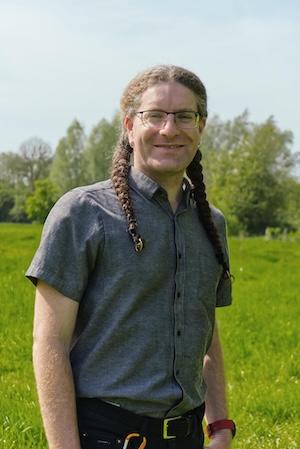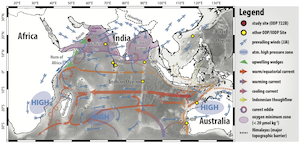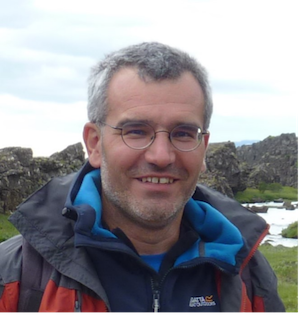Geo-colloquium programme
Program Winter-Semester 2024/25 |
|
24.10.202413:15, Lecture hall C.011 |
|
|
|
|
31.10.202413:15, Lecture hall C.011 |
|
07.011.202413:15, Lecture hall C.011 Dr. Or Bialik (U Münster)Upwelling, Productivity, and Initiation of the Modern South Asian MonsoonAbstract: Reorganization of ocean gateways and global cool fundamentally shifted weather and ocean systems. In the Indian Ocean, these two paired to radically shift the productivity patterns. This talk will explore some of this reorganization and what they can tell us about the large-scale shifts in the Earth’s system Vita: Researcher at the University of Münster, beginning next year as a Senior Scientists at the National Institute of Oceanography in Israel. Studies climate change in the modern and geological past as it expresses itself in marine systems Invited by: Stefanie Kaboth-Bahr |
|
14.11.202413:15, Lecture hall C.011 Dr. Katharina Otto (DLR Berlin)Regolith Morphologies on Volatile-Rich AsteroidsAbstract: Asteroids have been the target of many recent space missions. These missions revealed that their surfaces, which are exposed to the harsh environment of space including radiation, extreme temperature variations and the vacuum of space, is covered with a soil-like layer of rocks called regolith. Under the given environment and through the processes acting on a small body surfaces, regolith shapes a distinct morphology that is observable though space missions on multiple scales using orbiters, landers and returned samples. This presentation focuses on the regolith morphology of volatile-rich asteroids, including Bennu and Ryugu, and shows examples of what we have learned about these fascinating bodies from space mission observations at various scales. Vita: Katharina Otto’s research focusses on the exploration of small solar system bodies using space mission data. She is interested in understanding how the processes that shape small body surfaces interact and how they can be evidenced through the morphology of a small body. As a researcher at the German Aerospace Center’s (DLR) Institute of Planetary Research in Berlin-Adlershof, Katharina has been a member of the science teams of multiple small body space missions including Dawn, Rosetta, Hayabusa2, MMX and Psyche. Invited by: Ralf Jaumann |
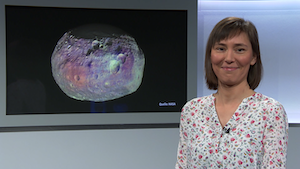 |
21.11.202413:15, Lecture hall C.011 Dr. Imogen Doyle (Massey University, New Zealand)Title: Exploring Paleohydrology in New ZealandAbstract: There is a poor understanding of past frequency, magnitude and catchment response to extreme events in New Zealand due to limited records and the relatively short human history. Recent, extreme flood events in New Zealand and elsewhere have demonstrated the impacts and risks posed by high-magnitude low-frequency flooding. This talk will discuss the current understanding of flood frequency in New Zealand, the current knowledge gap and the findings of on-going investigations into the paleohydrological history of two New Zealand rivers. Invited by: The Sedimentary Systems Group |
|
28.11.202413:15, Lecture hall C.011 Dr. Thomas Mueller (U Göttingen)Title: TBAAbstract: TBA Vita: TBA Invited by: Alex Webb |
|
05.12.202413:15, Lecture hall C.011 Dr. Nicolas Brantut (GFZ Potsdam)Title: TBAAbstract: TBA Vita: TBA Invited by: Timm John |
|
12.12.202413:15, Lecture hall C.011 Dr. Kathleen Stoof-Leichsenring (AWI Potsdam)Title: Sedimentary ancient DNA - an innovative proxy for paleoenvironmental reconstructionsAbstract: Understanding the development of past ecosystems provides valuable information about species dynamics under changing environmental conditions and allow ecosystem predictions under future climate change. Ancient DNA preserved in sediment cores, provide an archive of the past and makes it possible to track species without fossil remains. Moreover, ancient DNA allows higher taxonomic resolutions than traditional proxies (like pollen) allowing deeper insights into changes of composition, functionality and interactions between species over time. Arctic environments are highly threatened due to climate change and at the same time provide well suited archives of cold adapted ecosystems and its response to warming. In our research at AWI-Potsdam we aim to understand changes in Arctic ecosystem on long-time scale leveraging knowledge for ecosystem management and protection under future warming scenarios. Vita: Kathleen Stoof-Leichsenring is a senior scientist and laboratory leader of the research group “High-Latitude Biodiversity” in the section of Polar Terrestrial Environmental Systems at the Alfred Wegener Institute Helmholtz Centre for Polar and Marine Biology. Her research interests are in paleogenetics and - genomics combined with paleoenvironmental research with a focus on the Polar terrestrial and marine biomes and their compositional and functional changes from Late Pleistocene until recent. Invited by: Pavel Tarasov |
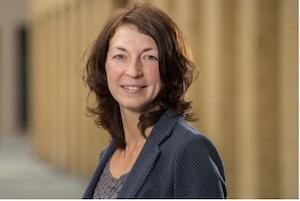 |
09.01.202513:15, Lecture hall C.011 Dr. Ralf Halama (U Halle)Nitrogen (in) rocks – the geological nitrogen cycleAbstract: The geological cycle of volatile elements such as nitrogen determines their distribution and exchange between the reservoirs of the solid Earth (core, mantle and crust), the ocean and the atmosphere. This presentation shows the fundamental aspects of nitrogen geochemistry, which has made great progress through studies on terrestrial samples and through experimental and theoretical studies. A special focus will be on the role of subduction zones for nitrogen transport and the continental crust as nitrogen reservoir. Vita: Ralf Halama received his doctorate on alkaline igneous rocks from the Gardar Province (South Greenland) at the University of Tübingen and his habilitation on the investigation of geochemical recycling processes using stable isotope systems at the University of Kiel. After 9 years as a lecturer in Igneous and Metamorphic Petrology at Keele University (UK), he moved to the Martin Luther University Halle-Wittenberg in 2024, where he represents the topics of Petrology/Geochemistry. Invited by: Timm JohnResearch page: https://www.geologie.uni-halle.de/igw/mingeo/Forschung_Degradation/geochemie-stickstoff.html |
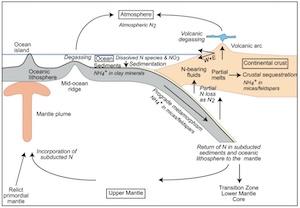
|
09.01.202513:15, Lecture hall C.011 Dr. Stephan-ScherbMineralogy Meets Materials Science - Research Insights for the Sustainable Use of Our ResourcesAbstract: TBD Vita: TBD Invited by: Susan Schorr |
|
23..01.202513:15, Lecture hall C.011 Dr. Alan HastieForming the Continental CrustAbstract: TBD
Invited by: Elis Hoffmann |
|
30.01.202513:15, Lecture hall C.011 Dr. Andreas Hübner (FU Berlin)FAIR and Open Research Data Practices in the Earth SciencesAbstract: TBD
Invited by: Elis Hoffmann |
|
30.01.202513:15, Lecture hall C.011 Dr. Sanjeev GuptaGeology of MarsAbstract: TBD Vita: TBD Invited by: Sebastian Walter |
|
13.02.202513:15, Lecture hall C.011 Dr. Matthias Hinderer (U Darmstadt)Title: TBAAbstract: TBD Vita: TBD Invited by: Stefanie Kaboth-Bahr |
|
Subscribe to the Geocolloquium mailing list:The programme and lecture information are distributed via the colloquium mailing list: https://lists.fu-berlin.de/listinfo/geokolloquium. You can directly subscribe to this list using the link. We usually send out only two announcement emails per lecture. |
|
